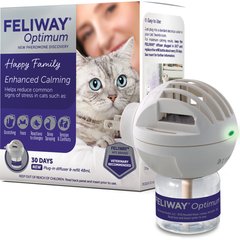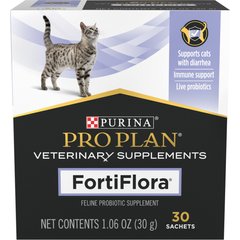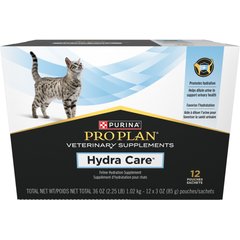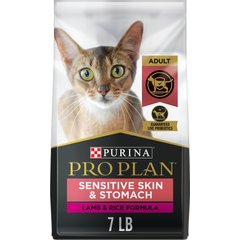Metabolic Muscle Disease without Inflammation in Cats
Non-inflammatory Metabolic Myopathy in Cats
Non-inflammatory metabolic myopathy is a rare muscle disease associated with metabolic disorders like various enzyme defects or storage of abnormal metabolic byproducts and others.
Symptoms and Types
- Muscular weakness
- Cramps
- Exercise intolerance
- Regurgitation and/or difficulty swallowing (dysphagia)
- Collapse
- Dark urine
- Vomiting
- Abdominal distention
Vet Recommended Health Support
- Feliway Optimum Enhanced Calming 30 Day Diffuser for Cats$29.99Chewy Price
- Purina Pro Plan Veterinary Diets FortiFlora Powder Probiotic Digestive Supplement for Cats, 30 count$30.99Chewy Price
- Purina Pro Plan Veterinary Diets Hydra Care Liver Flavored Liquid Supplement for Cats, 3-oz pouch, case of 12$14.99Chewy Price
- Purina Pro Plan Adult Sensitive Skin & Stomach Lamb & Rice Formula Dry Cat Food, 7-lb bag$28.08Chewy Price
Causes
- Congenital (born with this problem) error in metabolism
- Acquired (later in life) problems in metabolism
- Viral infections
- Drug exposure
- Environmental factors
Diagnosis
You will need to give a thorough history of your cat’s health, the onset and nature of the symptoms, to your veterinarian. He or she will then conduct a complete physical examination as well as a biochemistry profile, urinalysis, and complete blood count -- the results of which may show abnormalities related to metabolic problems involved. For example, the biochemistry profile may show abnormal levels of serum creatine (enzyme found in muscle, brain, and other tissues) and abnormally low levels of glucose (hypoglycemia).
Often, a muscle tissue sample will be sent to a veterinary pathologist for further evaluation. This may reveal abnormal accumulation of fats or glycogen within muscle cells.
Treatment
Treatment varies with the type of metabolic defect and extent of your cat's symptoms. In most cases, there is little to be done for those suffering from metabolic defects. If the cat suffers from seizures, decreased body glucose, or brain issues, it will need to be hospitalized and placed in intensive care.
Living and Management
Depending on the type of metabolic defect, diet restrictions may be put in place, especially if the defect has led to hypoglycemia. Discuss with your veterinarian about a feeding plan and do not allow the cat to exercise strenuously.
Overall prognosis depends on the type and extent of the metabolic defect, but a veterinarian will always advise against breeding the cat due to high probability of passing along the defect.



